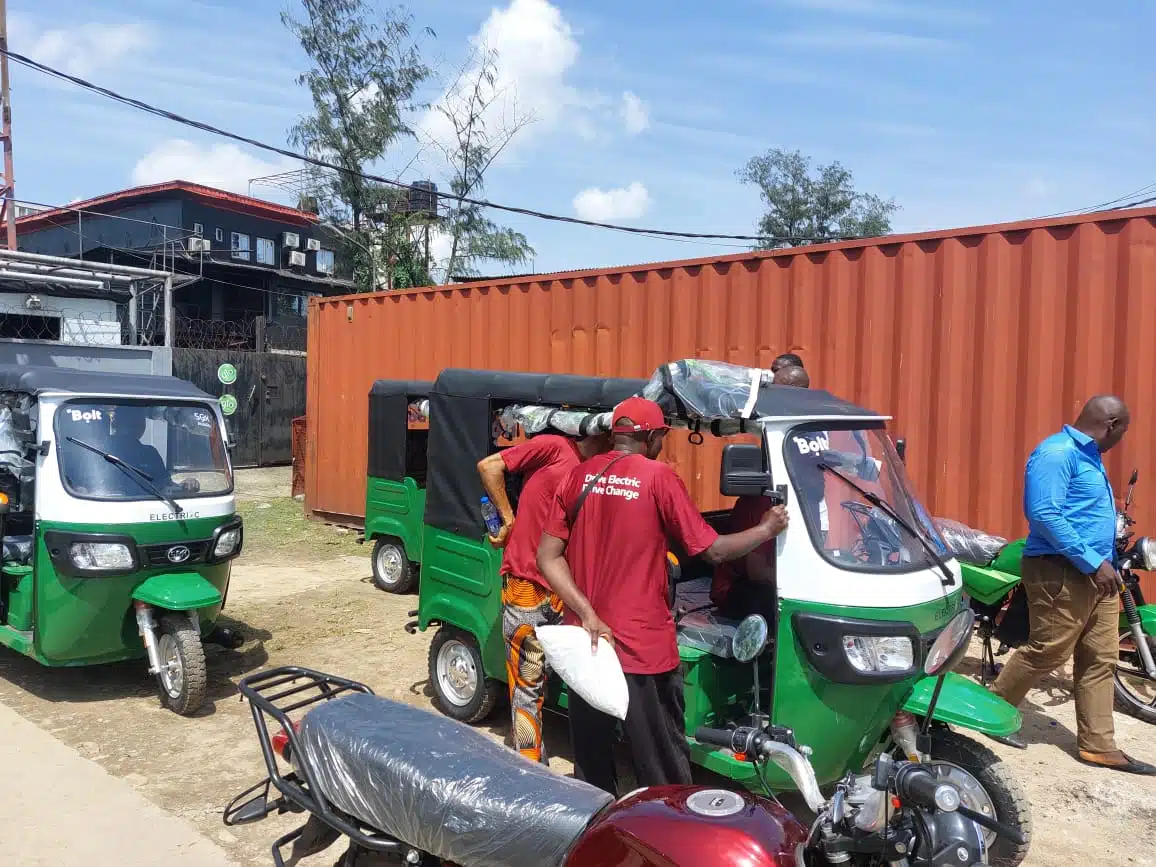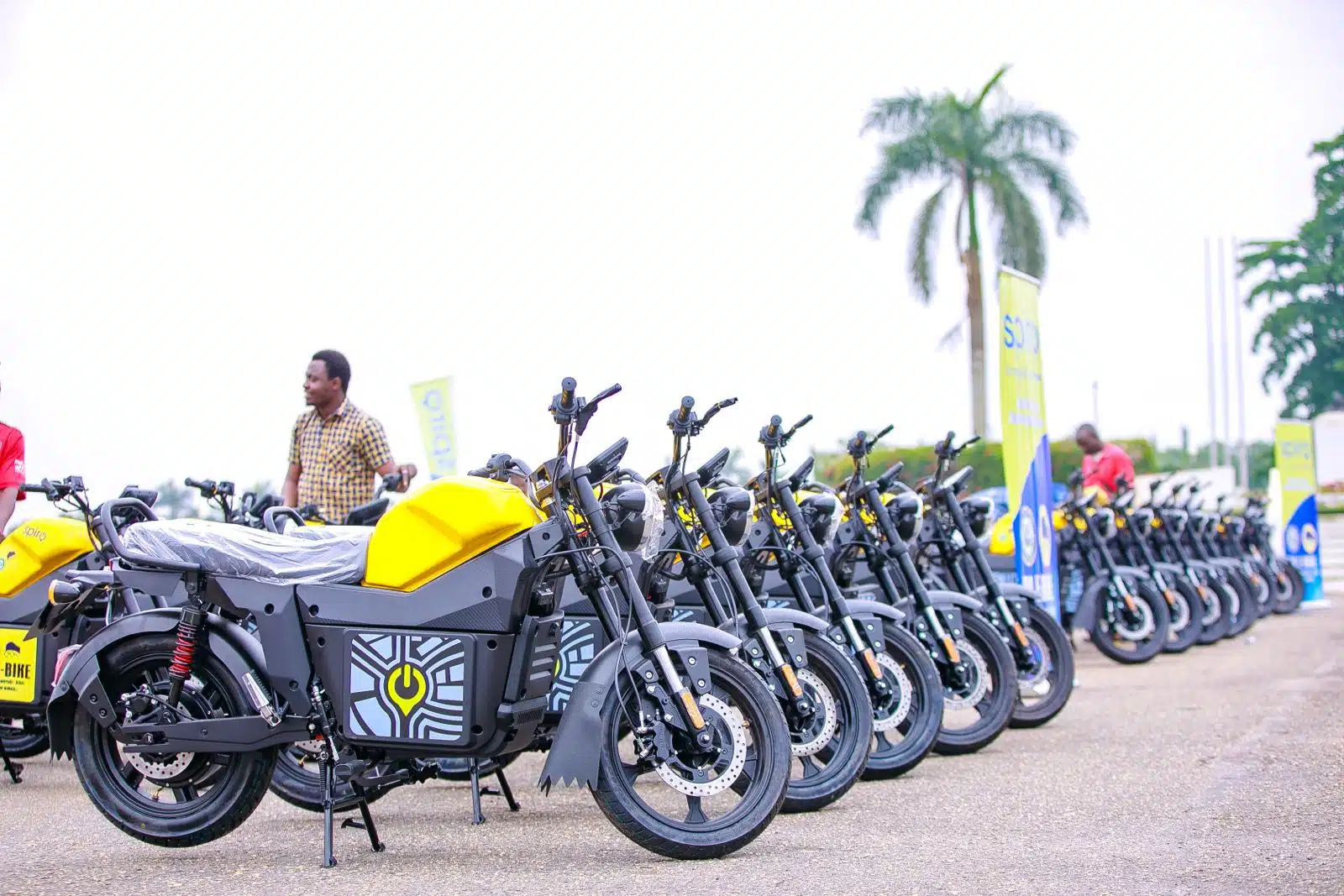Bolt users in Lagos will now be able to book electric tricycles. This was revealed at a launch event by Bolt showcasing its new tricycle fleet — the first ride-hailing service in Nigeria to start such.
The initiative is in partnership with SGX Mobility, a company specialising in the manufacturing, design, and development of electric vehicles. Under the arrangement, Bolt will deploy the electric tricycles to drivers, while SGX Mobility will handle their design and production.
Speaking at the event, Caroline Wanjihia, Bolt’s Regional Director of Rides Operations for Africa and International Markets, said the move is aimed at helping drivers cut down on costs.
“We are giving them tools to reduce fuel spending, avoid upfront vehicle costs, and eventually own their tricycles,” she said.
To enable ownership, Bolt will adopt a lease-to-own model, allowing drivers to take full ownership of the vehicles after two years.
Dele Awofala, an executive at SGX Mobility, added that financial partners have been engaged to support drivers with financing the tricycles.
However, similar lease-to-own models have previously struggled in Nigeria, with platforms like LagRide and Moove facing criticism from drivers. Many drivers reported challenges in meeting daily payment obligations, which significantly reduced their take-home income and made it difficult to afford vehicle maintenance.
Awofala, however, argued that these electric tricycles are far more affordable than the vehicles deployed by LagRide and Moove. While he did not disclose the full cost of the tricycles, he revealed that drivers would only need to make a down payment of ₦280,000.
Still, given that batteries account for over 60% of the cost of an electric vehicle, it can be inferred that these electric tricycles are likely more expensive than internal combustion engine (ICE) versions, which currently sell for over ₦3.5 million.

Victoria Fakiya – Senior Writer
Techpoint Digest
Stop struggling to find your tech career path
Discover in-demand tech skills and build a standout portfolio in this FREE 5-day email course
Nonetheless, Awofala noted that electric vehicles require far less maintenance than ICE vehicles. SGX Mobility also plans to install battery swapping stations across Lagos. According to him, the cost of swapping batteries will be less than half the current petrol price — approximately ₦462.50.
While these features could lower operational costs for drivers, the success of the service will depend heavily on infrastructure, particularly the availability and accessibility of battery-swapping stations.
Interestingly, this is not Bolt’s first attempt at launching a tricycle service in Nigeria. In 2020, the company rolled out a similar service in Uyo. Although little has been heard about it since, Bolt confirmed that the Uyo service is still active. For now, however, Bolt hasn’t stated where exactly the service will be available in Lagos, the range the tricycles can cover, and what it will cost end users.











